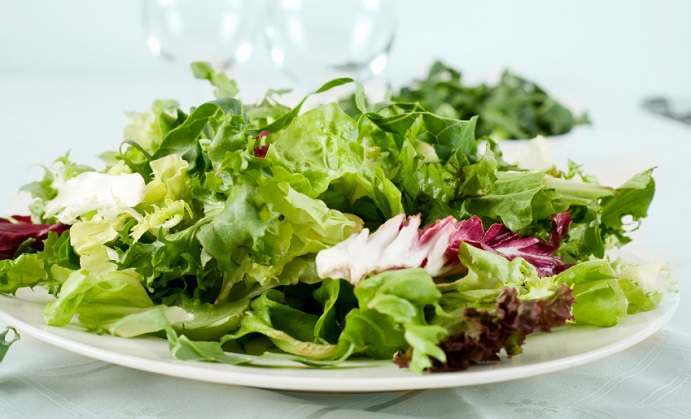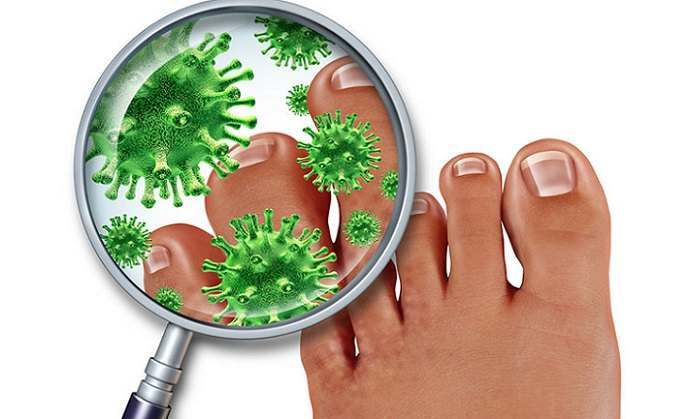Overview
The intestinal tract acts as a host for different beneficial bacteria. It also acts as a habitat for some molds, fungi, and pathogenic bacteria. Usually, the useful bacteria in the intestinal tract are more than the pathogenic types. However, metabolic imbalances that cause fungal infections can result from sicknesses, stress, poor diet, and extreme exposure to high levels of fungi and molds. A diet that has the ability to detoxify the fungi can help in restoring a healthy balance in your immune system and digestive tract. This article describes the types of foods that are needed to make a detoxification diet for the fungi that cause infections.
Metabolic Imbalances
 Poor diets and stress lead to metabolic imbalances that contribute to the development of fungal infections. Diets that contain high amounts of processed carbohydrates, sugar, animal products, and acid-forming foodstuffs create a chemical imbalance in the body. This imbalance plays a part in increasing your risk of acquiring parasitic, fungal, and any opportunistic infections. In order to shift this imbalance to a balanced condition, consider taking a diet that can detoxify the fungi. Your meals should have alkalizing foods with large amounts of minerals like potassium, calcium, and magnesium. Vegetables and fruits, especially those with large quantities of water content, are among the best alkalizing and antifungal foods that can clear metabolic imbalances. Additionally, almonds and some nuts and grains help in increasing the level of alkalinity in your body.
Poor diets and stress lead to metabolic imbalances that contribute to the development of fungal infections. Diets that contain high amounts of processed carbohydrates, sugar, animal products, and acid-forming foodstuffs create a chemical imbalance in the body. This imbalance plays a part in increasing your risk of acquiring parasitic, fungal, and any opportunistic infections. In order to shift this imbalance to a balanced condition, consider taking a diet that can detoxify the fungi. Your meals should have alkalizing foods with large amounts of minerals like potassium, calcium, and magnesium. Vegetables and fruits, especially those with large quantities of water content, are among the best alkalizing and antifungal foods that can clear metabolic imbalances. Additionally, almonds and some nuts and grains help in increasing the level of alkalinity in your body.
Garlic
It is also important to take a diet that contains high quantities of garlic. Garlic has beneficial antifungal properties that help in eliminating fungi, yeast, and mold from the digestive system. Garlic ensures that fungi, yeast, and molds do not overgrow because they can hinder the useful bacteria in the body from working properly. A 2011 food study found out that garlic that grows naturally inhibits the activities of aspergillus, a natural mold that grows on foods like tree nuts, corn, and peanuts.
Grains
 A diet that contains large amounts of grains, starches, fruits, and alcohol increases the risk of acquiring fungal infections. In this regard, it is advisable to ensure that your diet does not contain these foods. Always ensure that your detoxification diet does not contain most processed foods like sugars, starches, and alcohol. The level of your fungal overgrowth and your goals determine the amount of grains you should consume. You should start by experimenting with small quantities of high-grade grains. Some of the quality grains that should be experimented in small qualities include quinoa and millet. Moreover, you can substitute your grains with amaranth. This seed has large amounts of protein. Cook and eat it like any other grain.
A diet that contains large amounts of grains, starches, fruits, and alcohol increases the risk of acquiring fungal infections. In this regard, it is advisable to ensure that your diet does not contain these foods. Always ensure that your detoxification diet does not contain most processed foods like sugars, starches, and alcohol. The level of your fungal overgrowth and your goals determine the amount of grains you should consume. You should start by experimenting with small quantities of high-grade grains. Some of the quality grains that should be experimented in small qualities include quinoa and millet. Moreover, you can substitute your grains with amaranth. This seed has large amounts of protein. Cook and eat it like any other grain.
Spices
Spices also play a significant part in your detoxification diet. Prepare a spicy meal by including cayenne pepper, cinnamon, coriander, cloves, and cilantro in large quantities. These ingredients are known for their strong antioxidant properties. In this respect, they play a major role in assisting the immune system to combat fungal infections. Additionally, these ingredients have beneficial antimicrobial properties. Cinnamon is especially known for its ability to inhibit the development of fungi and yeast.












